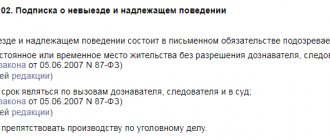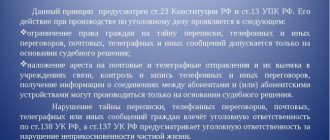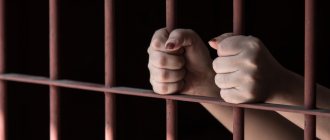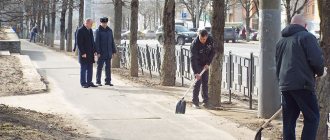If you need to write a message on the topic “Antisocial lifestyle”, then read the article. It describes the concepts and essence, as well as a lot of other useful information.
Every person lives in society and is part of it. That is why the norms, rules and laws adopted in society largely govern the behavior of a particular individual. The way of life that every respectable citizen of any country leads is called generally accepted. Such a person is approved by society as a whole and its various subsystems.
Read an article on our website about who a sociopath is in society . You will learn about the signs and the dangers of such people.
But there is also a “other side of the coin”. The opposite way of life is called antisocial (immoral) . Crime, drunkenness, prostitution, the use of prohibited substances, a person’s aggressiveness and his social danger - all this is determined by upbringing and standard of living. What an antisocial lifestyle is and how it is dangerous for society is described in this article. The information published below is suitable if you want to learn about the concept of antisociality or if you need to write a message for a lesson at school or other educational institution on this topic. Read on.
What are antisocial acts of minors?
This is the name for the actions of a minor, which are expressed in the use of narcotic, psychotropic and (or) intoxicating drugs, alcoholic beverages, as well as in prostitution, begging and any other actions that violate the rights and legitimate interests of other persons.
Definition of Engagement
As we have already found out, an antisocial act is something that clearly violates the existing law, and therefore the rights of citizens.
IN
Involving a teenager in such actions means psychological or even physical influence on him in order to obtain the result desired by the criminal. This can lead not only to serious and often irreversible changes in the child’s psyche, but also significantly affects society itself.
Also, children who use alcohol or drugs drop out of school and often do not resume it, which leads to the degradation of society and a decrease in the level of education. They may begin to commit more serious offenses in the future. Therefore, this problem is strictly controlled by law.
Particular attention is paid to those situations where parents or those persons who are responsible for raising and educating children are involved in such acts.
What is the responsibility of minors for antisocial behavior?
Antisocial lifestyle
As a rule, criminal liability begins at the age of 16. However, this does not mean that before this the child can commit antisocial acts with impunity. At the age of 14-16 years , a minor will be convicted of rape, premeditated murder, hooliganism, etc. What other responsibilities exist for minors for antisocial behavior?
Children under this age will not be arrested. However, educational measures will be introduced for them:
- A fine is relevant for teenagers who earn extra money themselves. In some cases, the recovery is made from the parents’ pockets (if the child’s actions led to damage to property, or caused the victim unexpected expenses, a counterclaim is possible to compensate the damage by the parents or guardian).
- Correctional and community service - without interruption from studies no more than 2 hours a day.
- House arrest is usually used in severe cases.
One way or another, with children under 16 years of age , the public for antisocial behavior is not so much criminal as administrative. However, if a minor commits not hooliganism, but a crime, from a certain age he will serve time in a special institution.
Involving a minor in committing antisocial acts
If a person does not work, wanders, lives mainly by begging, then this lifestyle is usually called antisocial. Sometimes children and teenagers find themselves in the company of these people.
Begging
Begging should be understood as systematically asking persons who are not relatives for money, things, products, products or things of material value.
Prostitution
Prostitution is repeated sexual intercourse for the sake of receiving material or monetary reward.
Vagrancy
Systematic change of place of residence without good reason against the background of an asocial form of income: begging, theft, minor odd jobs that do not require qualifications.
Drinking alcohol
Minors cannot purchase alcohol on their own, so any consumption of drinks containing alcohol is possible only with the assistance of an adult.
If it turns out that an adult gave food to a person under the age of majority more than twice, then from the point of view of the law this will look like promoting antisocial behavior .
Use of intoxicants
Involvement in the use of intoxicating drugs is considered to be the deliberate repeated provision for use by a minor of drugs, medications that affect brain activity and temporarily change the perception of the world, and other substances, the components of which can cause “clouding” of consciousness for some time.
Article 1. Basic concepts
Information about changes:
Federal Law No. 179-FZ of June 29, 2015 amended Article 1 of this Federal Law
Article 1. Basic concepts
GUARANTEE:
See comments to Article 1 of this Federal Law
For the purposes of this Federal Law, the following basic concepts apply:
minor - a person under the age of eighteen;
neglected - a minor whose behavior is not controlled due to non-fulfillment or improper fulfillment of duties for his upbringing, training and (or) maintenance on the part of his parents or other legal representatives or officials;
homeless - homeless, without a place of residence and (or) place of stay;
a minor in a socially dangerous situation - a person who, due to neglect or homelessness, is in an environment that poses a danger to his life or health or does not meet the requirements for his upbringing or maintenance, or commits an offense or antisocial actions;
antisocial actions - actions of a minor, expressed in the systematic use of narcotic drugs, psychotropic and (or) intoxicating substances, alcoholic and alcohol-containing products, prostitution, vagrancy or begging, as well as other actions that violate the rights and legitimate interests of other persons;
family in a socially dangerous situation - a family with children in a socially dangerous situation, as well as a family where parents or other legal representatives of minors do not fulfill their duties for their upbringing, education and (or) maintenance and (or) negatively influence their behavior or mistreat them;
individual preventive work - activities for the timely identification of minors and families in a socially dangerous situation, as well as for their social and pedagogical rehabilitation and (or) prevention of their commission of offenses and antisocial actions;
prevention of neglect and delinquency of minors - a system of social, legal, pedagogical and other measures aimed at identifying and eliminating the causes and conditions that contribute to neglect, homelessness, delinquency and antisocial actions of minors, carried out in conjunction with individual preventive work with minors and families in socially dangerous situation;
Corpus delicti
If an adult persuades a teenager to:
- vagrancy;
- begging;
- drunkenness;
- use of intoxicating substances in the form of tablets;
- inhalation of toxic fumes (glue, acetone),
then he commits a crime, which is regarded by the Criminal Code of the Russian Federation as involving a child/teenager in antisocial actions.
Why are the above acts on the part of an adult considered a crime? The fact is that in most cases this lifestyle leads to negative consequences. Thus, the influence of alcohol, intoxicating and toxic substances destroys the body of children/teenagers.
Getting used to wandering, minors, as a rule, drop out of school, which, in turn, leads to a decrease in the level of education, intelligence, as well as spirituality, and a slowdown in psycho-emotional development. Such dishonest and unearned earnings as begging can become a habit and even turn into theft and other atrocities.
The crime we are considering is devoted to Art. 151 of the Criminal Code of the Russian Federation, which is divided into 3 parts according to the presence/absence of qualifying features.
The main object of the crime: social relations aimed at ensuring adequate, full psychophysical and moral development of a minor and the formation of his personality. Additional – personal health.
Victims are persons under 18 years of age.
The objective side is the involvement of a minor in committing antisocial actions, such as:
- systematic consumption of alcohol-containing drinks (at least 3 times within a short period of time);
- systematic use of potent drugs and toxic substances (acetone, Elenium, Relanium, etc.).
- consumption of narcotic or psychotropic drugs even during a one-time commission of an act;
- prostitution;
- vagrancy and begging.
The methods of involvement in the commission of such acts are different:
- deception;
- promises;
- bribe;
- breach of trust;
- persuasion;
- blackmail;
- threats (but without violence).
The act is completed when the teenager is encouraged to take all of the above actions and the minor adopts the specified lifestyle. The intent of the crime is always direct.
Objective and subjective sides
The objective side is the actual involvement of adolescents and children in committing acts that are clearly illegal.
The subjective side determines guilt in the form of direct intent , since the person inciting a teenager to engage in illegal actions is fully aware and wants his actions to have their negative consequences.
Antisocial lifestyle: concept and essence
Antisocial lifestyle
What characterizes an immoral, antisocial lifestyle? Its concept was described above. Here's the essence:
- Short life expectancy - bad habits and following vicious instincts can interrupt a person’s existence at a fairly young age. If law-abiding citizens can live a long and happy life (let's say, up to 80 years or more), then many drug addicts and criminals do not even live to see 30 . The whole point is that the leisure sphere of such people is deformed. They commit crimes and may be killed by their own accomplices or may not return from prison.
- Antisocial behavior is a person’s lifestyle in which crime predominates. The individual does not devote enough time to self-development, study or work. Antisocial people really like easy money, which can be used for entertainment and self-destruction.
- The criminal component - if hooligans commit offenses, then the height of an immoral lifestyle is crimes of moderate and severe severity. These people are not only condemned by others, but are also capable of having a negative influence on them or even becoming dangerous.
- Low social responsibility - immoral people, as a rule, underestimate the institution of family and marriage, they are prone to promiscuity or earning money in a similar way.
An antisocial personality is a person who deliberately ignores the laws and norms accepted in society. Minor offenses of such people can eventually become major offenses. This is how an immoral person is born, leading an antisocial lifestyle.
Qualifying features - what actions can be confused with
It should be noted that the motive and purpose of committing this crime are not particularly important for its qualification. The same applies to whether or not the teenager succumbed to provocation from an adult. The crime is considered committed at the moment when he has already tried to do it.
Regarding the last point, there is some disagreement on the part of legislators and lawyers, since some of them believe that this offense should be considered completed when the teenager began to commit the actions to which he was encouraged.
Sometimes this crime is confused with a completely different one, which is interpreted in Art. 150 of the Criminal Code of the Russian Federation. However, it clarifies that under this article, preventive measures are prescribed only in cases where adults involve a child or teenager in committing crimes.
If antisocial actions of minors are those actions that do not fit into the framework of the law and can cause harm to society, then a crime is an act that carries a high degree of danger to citizens, and also involves significant damage to law and order.
This is the difference between these two atrocities.
What punishment faces in 2022?
The type of punishment depends on the classification of the crime. For a crime under Art. 151 of the Criminal Code of the Russian Federation The following types of punishment may be applied to the accused:
- up to 480 hours of compulsory work;
- from 1 to 2 years of correctional labor;
- from 4 to 6 months of arrest;
- from 2 to 4 years of restriction of freedom;
- up to 6 years of imprisonment (under Part 3 of Article 151 of the Criminal Code of the Russian Federation);
- prohibition from conducting certain activities for 3 years.
A parent who involves a teenager in vagrancy due to difficult life circumstances caused by lack of a place of residence or loss of a source of livelihood is not subject to criminal liability.
Prevention of crime under Art. 151 of the Criminal Code of the Russian Federation
Psychologists, sociologists, and criminologists unanimously emphasize the need to actively combat antisocial behavior of Russians at all levels.
At the state level, a special law was adopted for this purpose (Federal Law No. 120), which was approved in June 1999 . This regulatory act speaks of the need for preventive conversations between social workers and potential involved adults and their victims. In addition, measures are provided for the social rehabilitation of children and adolescents already involved in such acts.
At the same time, there are still many street children on the streets. This means that prevention and the process of combating antisocial behavior have not yet brought the desired result.
People themselves, especially adults, must be aware of the harm of an antisocial lifestyle for minors. In times of crisis, adults sometimes simply do not want to deal with the problems and difficulties of life, they sink to the “bottom” of life and drag their relatives or acquaintances with them.
Prevention of antisocial behavior
In many ways, children from disadvantaged families are susceptible to immoral behavior. However, other cases are also possible. The fight against antisocial behavior in children largely depends on the successful actions of psychologists. Here's how to prevent antisocial behavior:
TEACHERS AT SCHOOL SHOULD CONDUCT:
- Combating absenteeism
- Promoting good academic performance and a healthy lifestyle
- Proper organization of students' leisure time
- It is better to spend children’s energy not on hooliganism and bad habits, but on creative activities and sports.
- Promoting correct personal and family values, etc.
Post on Jellyfish in Biology . You will learn where they live, what they eat and a lot of other useful information.
Health and legal education classes should also be provided. The child must know exactly what actions qualify as antisocial and what sad consequences they can lead to.
From a certain age, sex education lessons are necessary, as well as improving the standard of living of young people in general. After all, despair often pushes people into bad habits, and poverty into crimes.
How to prove the fact of lack of involvement
Paragraph 8 of the Resolution of the Plenum of the Armed Forces of the Russian Federation No. 7 exempts an adult citizen from criminal liability under this article if he was not aware that he was involving a teenager in illegal actions, or had no idea about the real age of the child.
Also in the note to Art. 151 of the Criminal Code of the Russian Federation states that the fact of involvement in vagrancy is absent in cases where a teenager is forced to wander on the street with his family due to the latter’s distress. In this case, you should provide any papers that confirm this fact.
How will prevention be carried out?
- The preventive conversation will consist of explaining to the offender “his moral and legal responsibility to society and the state.”
- There are also plans to explain the social and legal consequences of continuing antisocial behavior.
- Such conversations will be carried out both in office premises and at the place of residence, training or work, as well as directly at the place where antisocial behavior is detected.
- Preventive registration and supervision will be carried out by law enforcement agencies. They are entrusted with monitoring the behavior of persons on preventive registration and their compliance with the restrictions established in accordance with the legislation of the Russian Federation.
- The prosecutor's office, the Investigative Committee, the Ministry of Internal Affairs, the FSB, and the Federal Penitentiary Service can also issue a warning to a citizen about possible offenses or antisocial behavior in the absence of grounds for bringing him to criminal or administrative liability.
Establish what is the relationship between antisocial behavior, extremism and terrorism?
Antisocial behavior, in a global sense, denies all norms accepted in society. As for terrorism and extremism, these are methods by which people can establish their own rules. Establish what is the relationship between antisocial behavior, extremism and terrorism?
- As a rule, terrorists and extremists propagate ideas that are alien to society.
- They organize pickets and actions and enter into open conflict with government representatives.
- This is in some way anarchism, contempt for the existing way of life in the country and a desire to radically change everything.
Read an article on our website with messages on the topic “Radiation around us” . You will find many arguments and other useful information.
Essentially, in both cases antisocial behavior predominates. The consequences of terrorism can harm people's lives. As for extremism, it is also propaganda of an antisocial lifestyle. Accordingly, both terrorism and extremism are a manifestation of an antisocial position.
Arbitrage practice
Law enforcement and judicial practice in the investigation of crimes under Art.
151 of the Criminal Code of the Russian Federation allows us to identify a number of shortcomings for 2022. The fact is that such acts are traditionally considered by investigators as “additional” to the main offenses (hijacking, theft) for which criminal cases are initiated. It is very difficult in court to prove the guilt of adults who involve teenagers in committing antisocial acts, which is due to many reasons.
The accusation is based mainly only on the testimony of the accused himself and the teenager, not supported by other evidence, which ultimately leads to the acquittal of adults by the court under Art. 151 of the Criminal Code of the Russian Federation.
Teenagers often refuse their testimony under pressure from an adult, and the presence of mental pressure on a minor from an adult requires a detailed analysis of their relationship, the mechanism of their conspiracy; At the same time, investigators underestimate the moment of efficiency in the investigation process.
During the investigation, it is necessary to take into account the fact that a teenager involved in committing atrocities can take on someone else’s guilt, demonstrating himself as the initiator of the crime.
Such behavior is associated with the psychological characteristics of minors: the lower their intellectual development, the more this is manifested. The reason for many acquittals in this crime is the fact that investigators and interrogators did not pay due attention to establishing all the circumstances of teenagers’ involvement in antisocial actions and in the absence of direct evidence of this.
All this explains the significant number of acquittals in trials where crimes under Art. 151 of the Criminal Code of the Russian Federation. In approximately 90% of cases, the defendants were acquitted of the charges under this article .
Thus, we can say with confidence that the practice of investigating criminal cases under Art. 151 of the Criminal Code of the Russian Federation for a number of years and to this day is at a fairly low level and requires improvement.
Case 1
Thanks to the work of the traffic police inspector, it turned out that a certain adult S, who had previously had problems with the law, but got off with a suspended sentence, repeatedly suggested that the minor Z try intoxicating substances.
In particular, breathe in the vapors of the stain. During the investigation that began, it was established that S knew about J’s minority, but this did not stop him.
During the inspection of home C, bags with liquid residues and containers for a product intended for painting surfaces were found.
After the trial, S was sentenced to 3 years in prison and sent to a maximum security colony.
Case 2
The mother forced her daughter to beg, having previously explained which people should be approached, how to behave and what to say.
During the court hearing, the mother did not deny guilt and repented. For involving her daughter in antisocial behavior, the mother was sentenced to a year of suspended imprisonment, with a probationary period of one year.
People who are “lost” to society, without a twinge of conscience, “instill” their harmful habits in the minors they know.
It does not matter how such individuals motivate their behavior, however, it is prosecuted by law if the fact of involvement in antisocial action is revealed.










